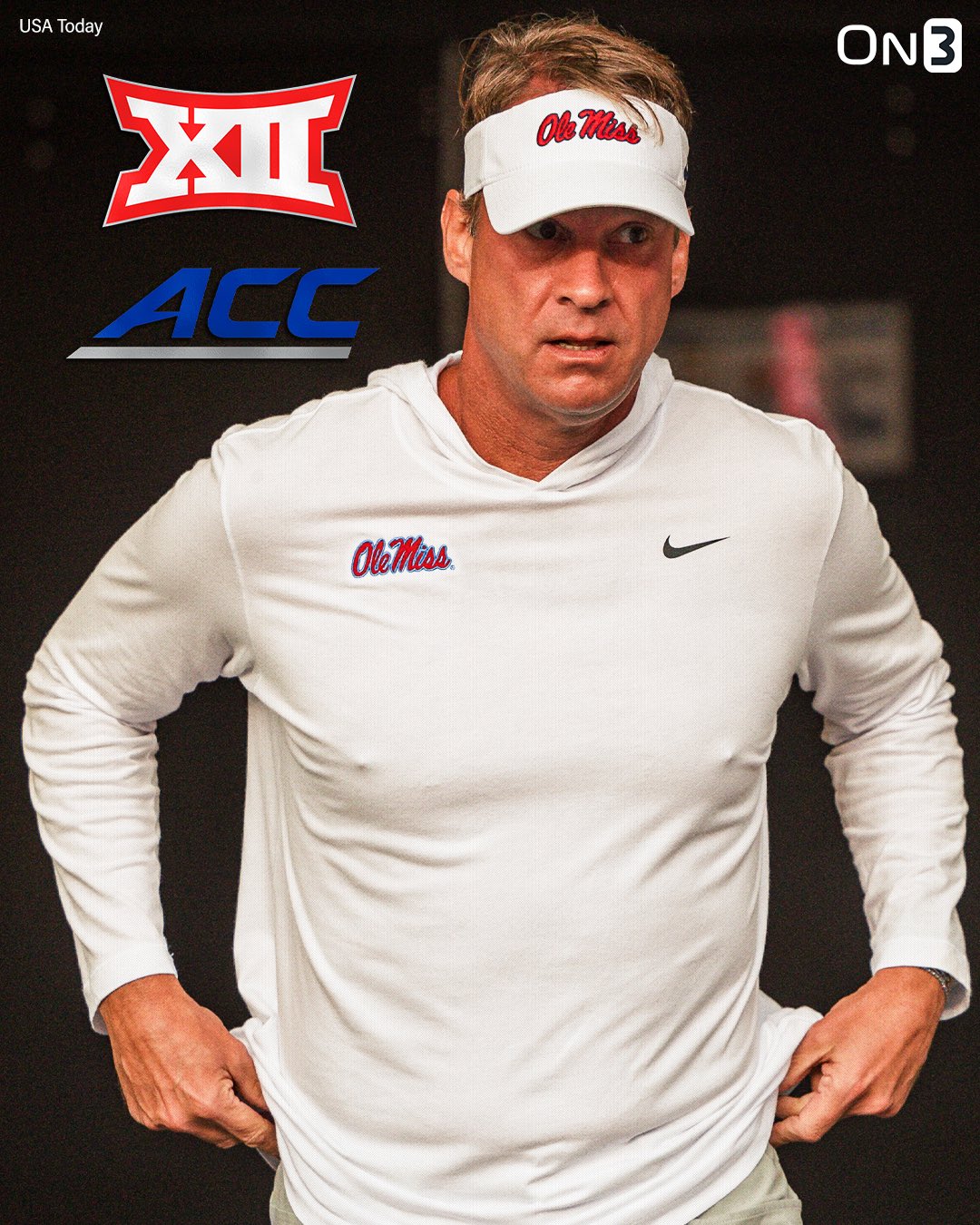Lane Kiffin Takes Aim at the ACC and Big 12 Over College Football Playoff Rankings
Ole Miss head coach Lane Kiffin has never been one to shy away from speaking his mind, and his latest comments regarding the College Football Playoff (CFP) rankings have stirred controversy across the college football landscape. Speaking candidly during a press conference, Kiffin criticized the perceived inequities in how teams from the SEC are evaluated compared to those from the ACC and Big 12, calling the current system “ridiculous.”
Kiffin’s remarks came in response to questions about the CFP rankings and how strength of schedule impacts the evaluation of teams vying for a playoff spot. In his trademark blunt style, Kiffin didn’t hold back:
“It’s ridiculous, the difference of playing in the SEC and the ACC and Big 12,” Kiffin said. “To think that you’re looking at schools and you’re talking about, like, Clemson’s schedule and who they played over Alabama. It’s stupid. I’m not gonna name them. Take some of those teams that are up there that haven’t played anybody and put them down in the SEC, they’re .500 teams.”
Kiffin’s comments reflect a long-held belief among SEC coaches and fans that the conference’s weekly grind far outweighs the challenges faced by teams in other Power 5 leagues. With perennial powerhouses like Georgia, Alabama, and LSU in the mix—and rising programs like Tennessee and Ole Miss—the SEC boasts a level of competition unmatched by other conferences.
At the heart of Kiffin’s criticism is the issue of strength of schedule, a key component in CFP rankings. The SEC routinely ranks as the toughest conference in college football due to its depth and the number of ranked teams competing against each other. Conversely, the ACC and Big 12 often face scrutiny for their perceived lack of depth and weaker non-conference schedules.
For instance, Clemson’s schedule in the ACC has frequently been criticized, with games against lower-tier teams often dominating their calendar. Similarly, Big 12 teams like Oklahoma State and Kansas State have faced skepticism over their schedules compared to SEC powerhouses battling it out weekly in high-stakes matchups.
Kiffin’s comments also align with arguments that teams in the SEC can afford fewer slip-ups and often endure tougher paths to the CFP than their counterparts in other conferences.
Kiffin’s remarks are unlikely to go unnoticed by coaches and players from the ACC and Big 12. Historically, conferences outside the SEC have pushed back against the narrative that the SEC is inherently superior. Advocates for the ACC and Big 12 point to CFP titles won by teams like Clemson (2016, 2018) as evidence that their champions can compete at the highest level.
However, critics of these conferences argue that such successes are exceptions rather than the norm. Kiffin’s assertion that certain top-ranked teams would struggle to finish .500 in the SEC echoes sentiments shared by SEC loyalists who believe their conference’s depth makes it the true measuring stick of elite college football.
Kiffin’s comments come at a pivotal time in college football, as the CFP prepares to expand to 12 teams in 2024. The expanded format will likely place even greater emphasis on strength of schedule, as more teams from across conferences will be vying for playoff spots.
If Kiffin’s critique holds weight, it underscores the importance of a more objective approach to evaluating teams from different conferences. Advocates for the SEC argue that metrics such as strength of schedule and quality of wins should carry more weight, ensuring that the most battle-tested teams are rewarded.
Lane Kiffin’s willingness to wade into controversial waters is nothing new. Known for his sharp wit and outspoken nature, Kiffin has built a reputation as one of college football’s most colorful personalities. While his comments may ruffle feathers in the ACC and Big 12, they also highlight the ongoing debate about fairness in college football rankings.
Whether one agrees with Kiffin or not, his remarks capture the broader tension between conferences as they vie for national recognition and postseason opportunities. As the SEC continues to dominate on the field and in recruiting, coaches like Kiffin remain unapologetic in defending its status as the sport’s premier conference.
In the end, the CFP committee will decide how much weight to give strength of schedule and conference competition. But if Kiffin’s fiery critique is any indication, the debate over the SEC’s superiority is far from over.
 “It’s ridiculous, the difference of playing in the SEC and the ACC and Big 12….
“It’s ridiculous, the difference of playing in the SEC and the ACC and Big 12…. 
 Oklahoma 4-star QB commit Jaden O’Neal just committed to Florida State following
Oklahoma 4-star QB commit Jaden O’Neal just committed to Florida State following